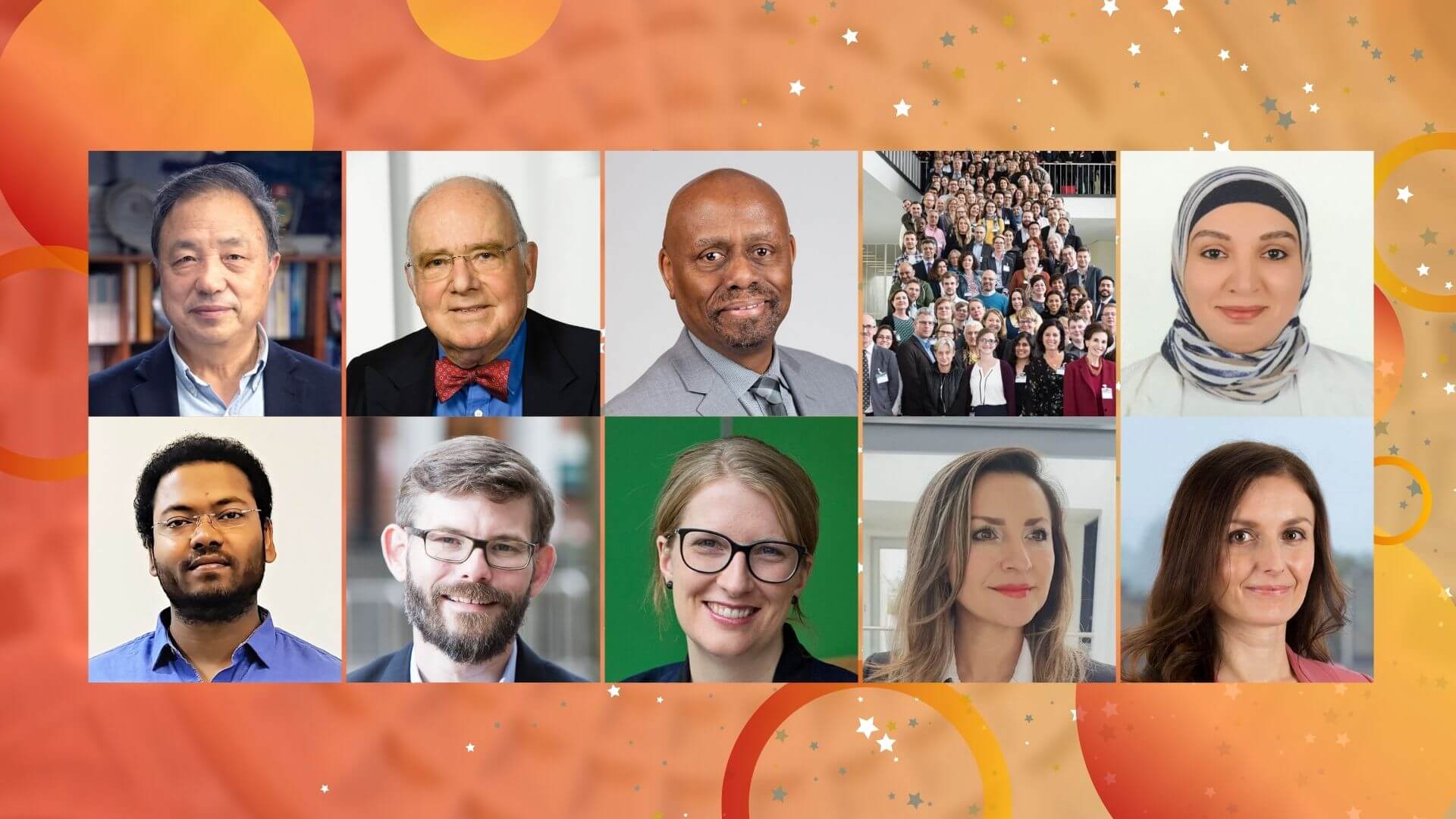
Watch the awards ceremony live from 13:10 UTC on Wednesday 13 October:
Paris, 13 October 2021 – Ten different awards were conferred to individual scientists and organizations in recognition of their leading-edge research in different fields of science, and actions to promote free and responsible science that is accessible to all. All ten of the inaugural awardees are working on issues of critical important to science and to society, including tackling pandemics in low-resource settings, reducing emissions, developing pathways to sustainable development, making scientific knowledge accessible to all and safeguarding scientists at risk.
“The ISC is committed to supporting the development of all science, from discovery to application, and including the full range of disciplines, from the natural and technological, to the behavioural, social and data sciences. Today the ISC celebrates scientific achievements by individuals and groups of individuals, whom we are recognizing for being innovators in international, interdisciplinary scientific research, science education and outreach, for bringing scientific knowledge into the public domain, and for promoting the free and responsible practice of science,” said Alik Ismail-Zadeh, ISC Secretary.
The ISC congratulates all 2021 awardees:
Six awards recognize the achievement of early-career scientists across different regions of the world:
During an awards ceremony hosted by journalist Christina Okello, ISC President Daya Reddy added his congratulations to awardees, saying:
“It really is appropriate that we recognize those scientists and organizations whose work and whose achievements in the context of science as a global public good are of the highest quality, and in this way bring great credit to the scientific community. Today we’ve had an opportunity to recognize such achievements. It is truly cause for celebration as we hear of the successes of our inaugural group of awardees, including an inspiring group of early career researchers, and pay tribute to and honour their exemplary achievements”.
The ISC Awards Programme was established by the ISC Governing Board in 2020, and a call for nominations from Members and partners resulted in more than 100 nominations from which the final awardees were chosen by an Awards Selection Committee and endorsed by the ISC Governing Board. The prizes include unique original artworks by award-winning scientific photographer Karl Gaff.
The ISC thanks its members and partners who submitted nominations for the Awards and wishes the winners the best of success in their future endeavours. The call for nominations for the 2024 ISC Awards will open in 2023.
Find out more about the 2021 ISC Awards, learn more about each of the awardees and their work, and watch their acceptance videos here: https://council.science/awards.
About the ISC
The International Science Council (ISC) works at the global level to catalyse and convene scientific expertise, advice and influence on issues of major concern to both science and society. The ISC is a non-governmental organization with a unique global membership that brings together over 200 international scientific Unions and Associations, as well as regional and national scientific organizations including Academies and Research Councils. The ISC was created in 2018 as the result of a merger between the International Council for Science (ICSU) and the International Social Science Council (ISSC). It is the only international non-governmental organization bringing together the natural and social sciences and the largest global science organization of its kind.
For more information about ISC see https://council.science/ and follow ISC on Twitter, LinkedIn, Facebook, Instagram and YouTube.
Contact
Lizzie Sayer, Senior Communications Officer, International Science Council
[email protected]
+33 (0)1 45 25 57 76